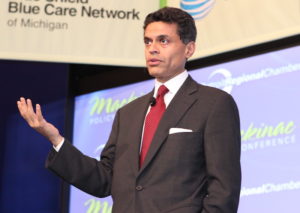Gates Ponders Delaying Iraq Drawdown
Defense Secretary Robert Gates says he's considering delaying this summer's planned reduction of U.S. troops in Iraq in order to look into how the drawdown would impact security, an approach also supported by Gen. David Petraeus.
Defense Secretary Robert Gates says he’s considering delaying this summer planned reduction of U.S. troops in Iraq in order to look into how the drawdown would impact security, an approach also supported by Gen. David Petraeus.
Your support is crucial...AP via Google News:
In his remarks at this U.S. base in southern Baghdad, Gates said Petraeus had given him his view on the drawdown, which some fear could result in giving up some of the security gains of recent months.
In endorsing Petraeus’ suggestion of pausing after July, Gates made it clear that President Bush would have the final say. Until now it had been unclear how Gates felt about the idea of a pause; he had said publicly a number of times that he hoped conditions in Iraq would permit a continuation of the drawdown in the second half of the year.
In his remarks here, Gates indicated that he had begun some time ago to lean in Petraeus’ direction.
“In my own thinking I had been kind of headed in that direction as well,” Gates said. “But one of the keys is how long is that period (of pause and evaluation) and then what happens after that.”
Despite dramatic declines in violence in recent months, the security situation in Iraq is tenuous, Gates said earlier Monday at an awards ceremony for Lt. Gen. Ray Odierno, the No. 2 commander in Iraq.
As we navigate an uncertain 2025, with a new administration questioning press freedoms, the risks are clear: our ability to report freely is under threat.
Your tax-deductible donation enables us to dig deeper, delivering fearless investigative reporting and analysis that exposes the reality beneath the headlines — without compromise.
Now is the time to take action. Stand with our courageous journalists. Donate today to protect a free press, uphold democracy and uncover the stories that need to be told.






You need to be a supporter to comment.
There are currently no responses to this article.
Be the first to respond.